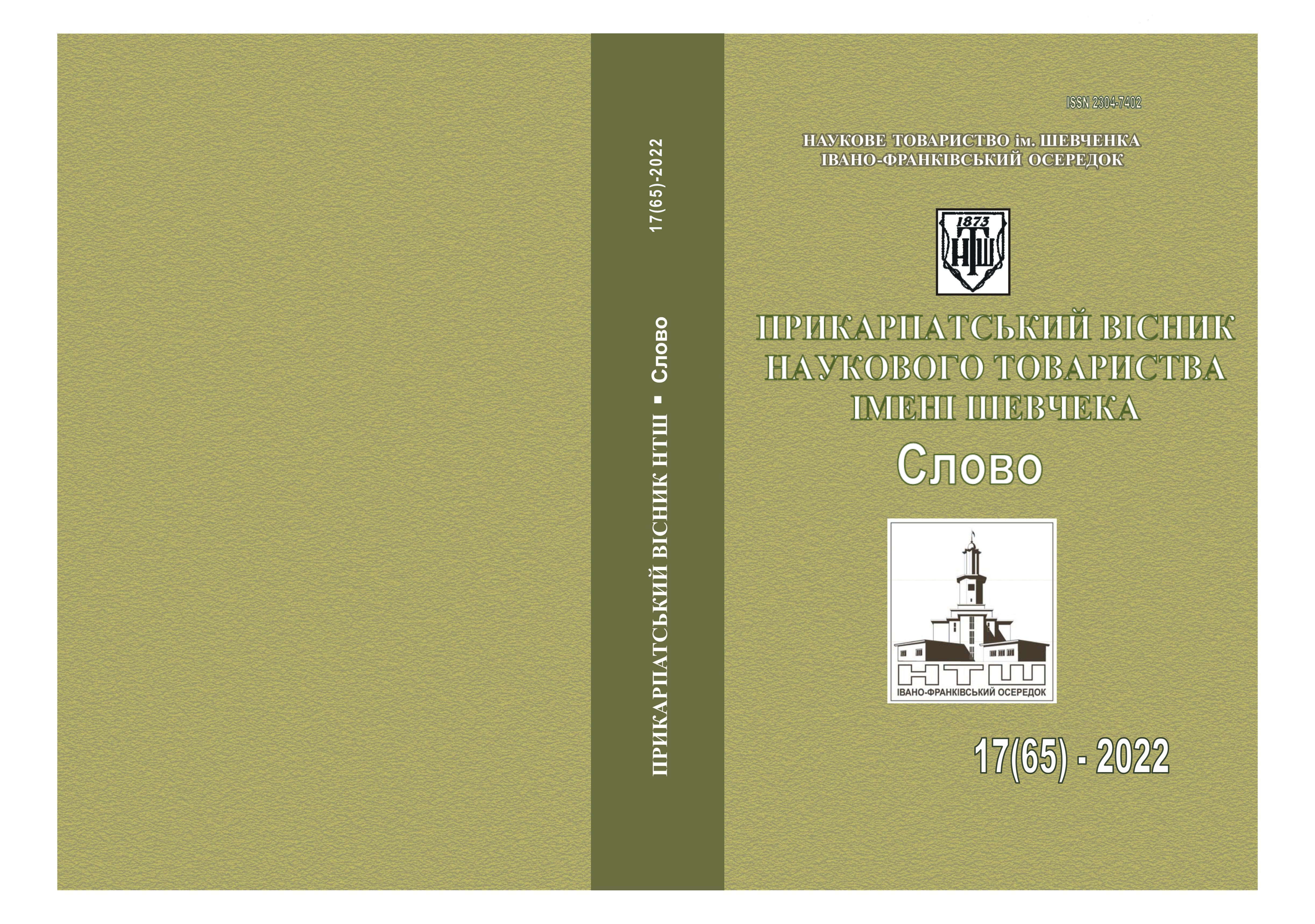THE RUSSIAN-UKRAINIAN WAR ON THE PAGES OF LITERARY TEXTS THROUGH THE PRISM OF POSTCOLONIAL CRITICISM
DOI:
https://doi.org/10.31471/2304-7402-2022-17(65)-372-380Keywords:
age-old confrontation between Ukraine and Russia, Ukrainian national idea, Armed Forces of Ukraine, hybrid war, annexation of Crimea by Russia, heroic resistance to colonization, heroic pathos of the liberation struggle of the Ukrainian people.Abstract
The history of the Russian-Ukrainian war, starting from 2014, and especially after February 24, became a powerful catalyst for the development of a new Ukrainian war prose, which represents the war as an absurd reality in all its manifestations – pain, horror, destruction, death. In recent years, a fairly large number of various publications about the ATO, events in the east of the country, among which Svitlana Talan's works "Perspective", "Bared Nerve", Leonid Kapelyushnyi's "Wild Field", etc., occupy an important place.
The article explains how characters' nature, their psychology and motivation are revealed through actions. Special attention is paid to the historical and social context as a factor that influences the behaviour of contemporary heroes and shapes them. In view of this, during the study of the artistic display of these events in the literary texts of the studied Ukrainian writers, emphasis was also placed on post-colonial criticism, which has the tools to interpret historical excesses, their causes, as well as distant consequences, including the almost 400-year rule of Russia over Ukraine, constant extermination of the smallest sprouts of Ukrainian self-identification and the efforts of our people to profess their own national idea of Ukrainian independence.
For the analysis of literary texts about the first stage of the Russian-Ukrainian war (2014 – 2021), the works of O. Bahan, Ye. Gutsal, D. Dontsov, V. Lyzanchuk, Yu. Lypa were used as a high-quality toolkit of postcolonial criticism, which has the best results in interpretation the fate of post-colonized states, and that is exactly what Ukraine has been doing throughout all the years of its recent history (1991 – 2022).
References
Баган О. Націосорфські ескізи. Баган Олег Історіософські есе. Тернопіль: видавництво «Крила», 2021. С. 125–232.
Баган О. Rossica: Російська цивілізація в історіософських інтерпретаціях: Нариси. Тернопіль: Видавництво «Крила», 2022. 128 с.
Гуцало Є. Ментальність орди: статті. Київ : Просвіта, 1996. 176 с.
Донцов Д. Від містики до політики. Торонто: Спілка визволення України, 1957. 61 с.
Донцов Д. Дух нашої давнини. Дрогобич: Відродження, 1991. 341 с.
Донцов Д. Модерне москвофільство. К.,1913. 365 с.
Іваничук Р. Орда: роман. Львів: Просвіта, 1992. 199 с.
Капелюшний Л. Дике поле. Київ: Видавництво «Український пріоритет», 2017. 470 с.
Лизанчук В. Не лукавити словом. Львів [Б. в.], 2003. 559 с.
Лазебник Ю. Відчуження: як чинився поділ суспільства на «наших» і «не наших»; трагедії та уроки цього поділу. Літературна Україна. 1992. С. 3,6.
Липа Ю. Призначення України. Львів: Просвіта, 1992. 269 с.
Талан С. Оголений нерв. Роман. Книга 1. Харків: Видавництво КСД, 2022. 286 с.
Талан Світлана Оголений нерв. Роман. Книга 2. Харків: Видавництво КСД, 2022. 478 с.
Талан С. Повернутися дощем. Роман. Книга 1. Харків: Видавництво КСД, 2022. 382 с.
Талан С. Ракурс. Роман. Харків. Видавництво: Клуб сімейного дозвілля, 2018. 317 с.

